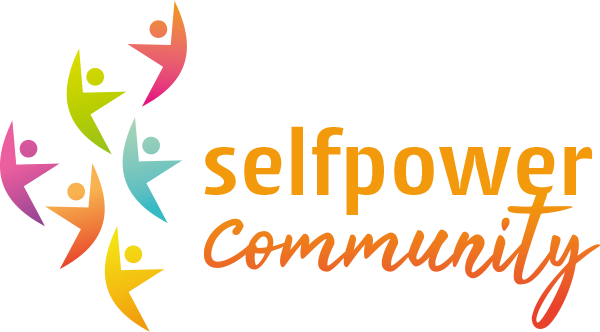60- 13/03/2023 As a researcher passionate about empowerment and its multiple applications, I was intrigued by a recent study that explored empowerment as preventive strategy against burnout among social work field instructors*. One of the authors, Lauren McCarthy comments on her study’s findings.

photo Nubelson Fernandes sur Unsplash
What are the established causes of burnout, this century desease that threatens the working world?
Lauren McCarthy Burnout is a complex phenomenon, and the existing research has only established characteristics that are associated with experiencing burnout – there have not been any studies that have established that these associations are causal. Most of the factors that are associated with burnout are organizational. The Jobs Demands-Resources model of burnout** suggests that the demands that a job places on an individual must be balanced by making resources available to employees to reduce burnout. This is supported by the literature on burnout in social work, which has found that organizational factors such as physical and psychological workplace conditions, distribution of resources, workload, and perceived lack of support from the employer are all associated with burnout. Individual characteristics associated with decreased burnout include years of experience or age, perceived commitment to the profession, perceived self-competence, and perceived job autonomy.
| “The study conducted in 2018, is based on an online survey conducted among a sample of 189 social work field instructors in a large city on the East Coast of the United States. The analysis focused on the relationship between Frans’ (1993)*** empowerment scale and Stamm’s (2009)**** ProQOL (Quality of Life in the Workplace) exhaustion scores. Frans’ (1993) empowerment scale consists of 5 dimensions: (a) having the knowledge and skills necessary to influence the events of others’ lives; (b) sharing a collective identity within one’s profession or organization, including shared goals and resources; (c) having critical consciousness by understanding the superstructures of the economy and society in which one operates; (d) self-concept, the representation one has of oneself (including a positive self-evaluation) and what is important to oneself; (e) propensity to act, the ability to undertake effective action for oneself or others. The ProQOL scores measure the frequency of symptomatic work experiences of burnout in the past 30 days (from never to very often). They measure compassion satisfaction, compassion fatigue, which is itself composed of two concepts: secondary traumatic stress and burnout. Control variables concern specific professional experience in the field of social work (years of practice, categories of beneficiaries – child, family, adult, people suffering from trauma, etc.).” |

Is empowerment really the opposite of burnout?
LMC I do not know that I would say empowerment is the opposite of burnout. What our study found was that social workers who had higher scores on a measure of empowerment tended to have lower scores on a measure of burnout. We also found that the type of empowerment mattered – social workers who felt empowered because they felt connected to the social work profession and those who felt empowered because they felt competent in their skills and knowledge experienced less burnout but those who felt empowered to take action actually experienced higher rates of burnout. These findings indicate that, at least for social workers, the relationship between empowerment and burnout is complicated by the ways in which they feel empowered.
Why are social work trainers particularly affected by burnout?
LMC Social work field instructors are often balancing multiple responsibilities. They not only have to meet the demands of their employer, which often include high-stress scenarios like investigating child maltreatment or addressing mental health crises, but also have to supervise and support students as they learn and develop their skills. This means that they are not only responsible for the health and safety of their own (often vulnerable) clients, but also the health and safety of their students and their students’ clients. Social work field instructors are often asked to balance these responsibilities with little support from their employer or the university. In addition, they are not often compensated for these extra responsibiltiies. All of this is taking place in the context of high productivity demands and very low budgets. Finally, the nature of social work means that professionals are often exposed to human impact of social problems such as poverty, violence and distressing individual issues such as illness, death or child abuse that can cause vicarious trauma.
What are the other most threatened professions ?
LMC I am not as familiar with other professions, but other service jobs without a lot of resources are likely at high risk. For example, in the US teachers, physicians, and nurses have experienced increases in already high rates of burnout/turnover since the onset and subsequent politicization of COVID-19. First responders such as police officers and Emergency Medical Technicians are also at high risk of burnout, also due to have stressful jobs that often do not offer enough resources.
What strategies can managers implement to limit employees burnout ?
LMC Our study that a sense of collective identity, or belonging, was associated with lower ratings of burnout. So, managers who want to prevent burnout should take steps to ensure employees feel connected to shared goals, values, vision, and resources within the organization or the profession as a whole. Encouraging open interaction and transparency so that workers feel connected and engaged in decision making may also help increase a sense of collective identity. Additionally, ensuring that employees feel that they have the necessary knowledge and skills to complete their job tasks successfully is important for reducing potential burnout. The more resources that can be provided to employees so that they can successfully complete the demands of their job, the better !

Burnout – empowerment : ChatGPT definition… and limitations
Burnout is a state of emotional, physical, and mental exhaustion caused by excessive and prolonged stress. It typically results from work-related stressors, such as high workload, lack of control over work, and low job satisfaction, and can lead to decreased productivity, increased absenteeism, and physical and mental health problems.
Empowerment refers to the process of giving individuals or groups more control over their work and decision-making power. It involves providing them with the necessary resources, support, and information to take charge of their work and make effective decisions.
Marie-Georges Fayn While ChatGPT burnout definition is not problematic, the empowerment one is too restrictive. It only takes into account empowerment in the workplace, not citizen empowerment, which encourages vulnerable people to join together to confront social forces, design their own alternative solutions and propose societal reforms.
Lauren McCarthy Nor does ChatGPT refer to individual’s or community’s level of autonomy and self-determination in terms of emancipation and ability to represent their own interests.
*McCarthy, L. P., Siegel, J. L., & Ware, O. D. (2022). Supporting social work field instructors: Empowerment as a strategy for preventing burnout. Journal of Social Work, 22(5), 1153-1169.
**Demerouti, E., Bakker, A. B., Nachreiner, F., & Schaufeli, W. B. (2001). The job demands resources model of burnout. Journal of Applied Psychology, 86(3) 499–512.
*** Frans, D. J. (1993). A scale for measuring social worker empowerment. Research on Social Work Practice, 3(3), 312–328.
**** Stamm, B. H. (2009). Professional Quality of Life: Compassion Satisfaction and Fatigue Version 5.
Marie-Georges Fayn – Lauren McCarthy
On the same topic (but in french) le disempowerment ou comment prendre une part active à l’empowerment des autres ?






En postant un commentaire sur www.selfpower-community, vous acceptez les règles de l’espace réaction et reconnaissez à www.selfpower-community la capacité de ne pas publier certaines contributions sans avoir à motiver cette décision.
prendre connaissance des règles